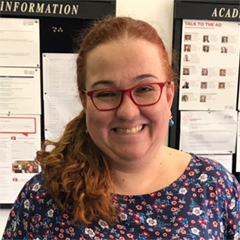Training Doubts
During the final grading meeting of a CELTA course I was assessing recently, one of the tutors asked me about the extent to which a trainee’s language should be taken into account when deciding on a final grade. It is an issue which has come up again and again in recent years, especially since the internationalization of teacher training courses like the CELTA.
It is an issue which goes to the very heart of how the language has been transformed by globalization, with some commentators now referring to ‘globish’. It also raises the question about what type of English we should be seeking to teach, and who should be teaching it.
When trawling through the classifieds for teaching positions black in the 80s, it was quite common to see the proviso, ‘native speakers need only apply’. I suppose that the presumption was that only so called native speakers were able to speak, write and understand the language correctly, and as such were the only ones to be entrusted with teaching the language.
Fortunately, it is very rare to see such advertisements these days (although some schools may still adopt such a recruitment policy covertly). Indeed, the terms ‘native‘ and ‘non-native‘ are now perceived to be obsolete. Although in some dark recesses, there may be a lingering presumption that just because someone happens to be a so called ‘native’, they are able to teach, times have changed, mainly due to the increase in the number of ‘non-natives’ taking courses like the CELTA.
The presumption that ‘native’ speakers, however you want to define them, make the best teachers is clearly misplaced. I have seen ‘natives’ give appalling lessons, and ‘non-natives’ fantastically effective lessons despite the fact that their language was limited at best, and at worst, plain wrong.
The CELTA guidelines are pretty clear when it comes to the selection of candidates:
[candidates must] have an awareness of language and a competence in both written and spoken English which will enable them to undertake the course and prepare for teaching a range of levels (The recommended candidate language level is C2 or high C1 – Grade A or B, on the CEFR.)
(The CELTA Administration Handbook, p.9)
However, it would be fanciful to assume that just because a candidate has managed to pass the Cambridge Advanced Exam, they will have the competence to analyze language or to teach without making errors. The ability to analyze language is less of a worry because it is something which can be taught on the course. However, we will not be able to guarantee that the candidate will not make errors while teaching in the classroom, especially under the added pressure of being observed. Indeed, I think that we have to assume that, in many cases, errors will be made. The question is, where do you draw the line? When do errors make a candidate unfit to teach?
A number of questions need to be addressed when it comes to evaluating teachers, and recommending them for future teaching positions. It should be noted that the answers to these questions are often left vague in the assessment criteria for teacher training courses (indeed, it is more often than not left up to the discretion of the local tutors). For example, in the assessment criteria for the CELTA, it states that a candidate should be
providing accurate and appropriate models of oral and written language in the classroom
o choose natural examples of language from context
o ensure new language models are natural and accurate when drilling
o highlight the target language clearly
o ensure language used on the whiteboard and on worksheets is correct in terms of spelling and punctuation
(The CELTA 5, Candidate Record Booklet, p. 26)
If this criteria were to be applied to the letter, then I doubt that many candidates, both non-natives and natives, would pass the course successfully. The vagueness of the criteria also leaves a number of important questions left unanswered. To what extent should language level and teaching ability be conflated? Can we assess one without the other? Should we be doing so? Should the only concern be that the teacher’s level of English is better than the students they are teaching or should a teacher only be permitted to teach to levels below their own level of English? Should the focus be on the target language or general use of English in the classroom? I presume teaching the target language incorrectly would not be acceptable but what about pronunciation and syntactical errors in classroom language?
As such, in a rapidly changing linguistic world where more and more non-native speakers are teaching English, and doing teacher training courses, I think that these are some of the questions we should be asking ourselves and our colleagues.
In the event, what did I say to the tutor? I said that as long as the candidate is not ‘teaching’ the language incorrectly, then that will suffice. However, I did also insist, as I always do, that the centre in question clearly indicate and comment on the level of the candidates’ language in the final report, as well as making a clear recommendation for the levels they should teach up to. For isn’t this what future employers would want to know?






